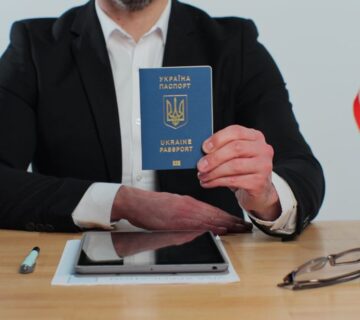The main path for temporarily staying a deportation order from Immigration and Customs Enforcement (ICE) is to file Form I-246, Application for a Stay of Deportation or Removal.
This formal, discretionary request is filed in person at a local ICE Enforcement and Removal Operations (ERO) office.
Key points for filing an administrative stay of removal
- Must have a final removal order: You must be under a final order of removal from an immigration judge or the Board of Immigration Appeals (BIA) to be eligible for this stay.
- Discretionary review: ICE has complete discretion on whether to grant a stay. They will review your entire case history, including your immigration and criminal records, and ties to the United States.
- Strong humanitarian or medical grounds: Your application is most compelling if it demonstrates compassionate circumstances. Examples include:
- A severe medical condition for yourself or a family member
- Dependence from U.S. citizen or lawful permanent resident family members
- Humanitarian concerns, such as a child’s best interests or dangerous country conditions
- Good moral character: You must present evidence of good moral character, such as strong community ties, rehabilitation after past mistakes, and a lack of serious criminal convictions.
- Strong supporting documentation: The application must be accompanied by evidence to support your claims. This can include:
- Medical records
- Letters from doctors, family, or employers
- Proof of employment and taxes
- Filing fee: You must include a non-refundable filing fee of $155.
- In-person submission: The application must be filed in person at the ICE ERO office with jurisdiction over your residence. If you are detained, you must file with the office that has custody of you.
What happens if the stay is approved?
If ICE approves your Form I-246, it will postpone your removal, typically for one year. You will be issued an Order of Supervision (OSUP) and must comply with its conditions, which may include periodic check-ins and travel restrictions. An approved stay does not grant permanent legal status.
Consequences of denial or revocation
A stay can be denied or revoked for reasons such as:
- Incomplete or untruthful information
- Criminal activity
- Violation of OSUP conditions
- Security concerns
Other legal strategies to stop deportation
If you are still in removal proceedings or a stay is denied, other legal avenues may be available. An experienced immigration attorney can evaluate your specific situation to determine the best course of action.
These options include:
- Motions to reopen or reconsider: If there is a legal or factual error in your case, or you have compelling new evidence, your attorney may file a motion with the immigration court or BIA to revisit the decision.
- Appealing the decision: You may be able to appeal an immigration judge’s order to the BIA, which can automatically halt your deportation until a decision is made.
- Cancellation of removal: Long-term residents with U.S. family members may qualify for cancellation of removal if they demonstrate good moral character and that their removal would cause extreme hardship.
- Asylum or withholding of removal: If you fear persecution in your home country, you may be eligible for relief under asylum laws or the Convention Against Torture.
- Voluntary departure: In some cases, a person may agree to leave the country voluntarily, which avoids a formal deportation order and its associated negative consequences.







No comment